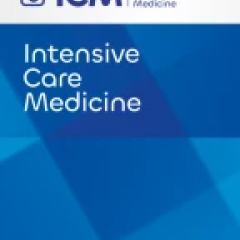Researchers at a new national research centre based at The University of Queensland are working to redefine antibiotic use in a bid to overcome antibiotic resistance.
The Centre will bring together national and international experts to focus on best practice for at-risk patients, such as critically ill children and patients in burns, post-transplant, dialysis and intensive care units.
UQ School of Medicine and School of Pharmacy Professor Jason Roberts, who will lead the centre, said the global battle against antibiotic resistance was being fought on three fronts.
“Firstly, when bacteria stop an antibiotic from working effectively, we have to find new ways to treat the condition or disease,” he said.
“Secondly, ineffective dosing and unrestrained prescribing of antibiotics contribute significantly to the resistance, and these practices have allowed ‘superbugs’ to emerge.
“Which means, thirdly, that scientists are under huge pressure to discover new antibiotics at a rate that matches the escalation of antimicrobial resistance.
“Worldwide programs like the World Health Organisation’s Antibiotic Awareness Week are important for educating everyone about using these powerful treatments properly.
“Centres such as this one will define new antibiotic dosing strategies to combat overuse, underuse and misuse.”
The Centre will also aim to develop global capacity in antimicrobial resistance research and clinical practice.
It will foster post-graduate and post-doctoral fellow research, teach undergraduate students and train healthcare practitioners.
The Centre is called the Centre for Research Excellence for REdefining antimicrobial use to reDUce resistanCE (REDUCE).
The REDUCE team includes intensive care, infectious diseases and transplant physicians, pharmacists, nurses, translational scientists, pharmacometricians, health services researchers, biostatisticians and clinical trial design experts.
The UQ-based REDUCE centre, funded by a $2.1 million NH&MRC grant, will build on the discoveries of antibiotic resistance scientists in Australia and around the world, including at the internationally renowned Burns Trauma and Critical Care Research Centre at the Royal Brisbane and Women's Hospital.
“Funding REDUCE is a major step towards achieving the objectives of the Australian Government’s first National Antimicrobial Resistance Strategy released in June this year, which includes promoting investment in new ways to prevent, detect and contain antimicrobial resistance,” Professor Roberts said.
For other articles on antibiotic resistance research at UQ, please visit UQ News.
Media: Professor Jason Roberts, j.roberts2@uq.edu.au, +61 (7) 3646 4108; Brian Mallon, School of Medicine Communications Manager, b.mallon@uq.edu.au, +61 (0) 403,621 109.



